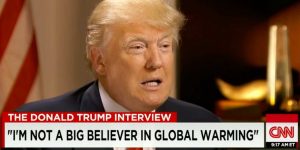Michaela Bergman, Chief Counsellor for Social Issues at the European Bank for Reconstruction and Development
Politics
Under the Shadow film screening
The School of Politics, Economics and International Relations would like to invite you to the launch of
Under the Shadow
A 54 minute documentary by Fiona Lloyd-Davies
Followed by a discussion panel with:
- Fiona Lloyd-Davies
- Vava Tampa, Congolese political youth activist
- Sarah Blakemore, Director of Keeping Children Safe
- Chaired by Dr Georgina Holmes, University of Reading
One woman leads Congo’s rape survivors to find healing, independence and justice through working together in the field. But can these women escape the shadow cast by this threat of sexual violence and will the spectre of justice bring hope and resolution? We hear extraordinary confessions from soldiers who have raped women and then witness inside the court room as others are tried for this crime, the ultimate weapon of war. This immersive, observational film was made over four years, taking the viewer inside a woman’s ultimate nightmare, to show how the human spirit is impossible to defeat.
Supreme Court Brexit ruling: What will the judges’ decision mean?
By Dr Ruvi Ziegler – lecturer in law and researcher of citizenship and electoral rights at the School of Law, University of Reading
The Supreme Court will determine on Tuesday whether the Government have power to give notice pursuant to Article 50 of the Treaty on EU of the UK’s intention to withdraw from the EU without an Act of Parliament providing prior authorisation to do so. The PM has announced that she intended to ‘trigger’ Article 50 before the end of March 2017.
Many may ask: what difference will the ruling actually make?
Order! In Conversation with The Rt Hon John Bercow MP
The Department of Politics and International Relations invites you to join them on Friday February 3 as the Speaker of the House of Commons, the Rt Hon John Bercow MP joins Dr Mark Shanahan and RUSU President Ben Cooper in conversation.
With everything from Brexit, to PMQs via reforming the Commons to the renovation of the Palace of Westminster on the agenda, there’ll be much to chew over – and plenty of opportunity for you to get involved as organisers invite questions from the floor.
The event will run from 6.30-7.30pm and will be held in the Van Emden Lecture Theatre.
The event will be ticketed – but tickets are free and you can register here.
Please contact Dr Mark Shanahan m.j.shanahan@reading.ac.uk if you would like any more information about the event.
Mexican standoff? The paradox of President Trump’s policies on Mexico
By Dr Tom Long, Lecturer in International Relations, School of Politics, Economics and International Relations, University of Reading
As Donald J. Trump is inaugurated as the 45th president of the United States of America, perhaps no country is more nervous than Mexico.
The United States’ southern neighbour has good reason for concern. Its economy and society are highly linked with the United States.
Trump has shaken the very pillars of the relationship. By threatening to upend the North American Free Trade Agreement (Nafta), the new president takes aim at the heart of Mexico’s economic strategy. About 80 percent of Mexican exports go to the United States, ranging from oil to fruit to automobiles. Trump’s highly publicised battles with companies that invest and outsource in Mexico attacks one of Mexican leaders’ key plans for job creation.
Dividing wall
Perhaps most troubling of all, Trump’s plans to deport millions of undocumented Mexican migrants and then build a border wall could tear apart the increasingly closely knit social fabric of communities that straddle the US-Mexican border.

A Mexican standoff. And a wall. Picture CC Martin SoulStealer
Obama’s final days: Regrets – he’s had a few
It’s President Barack Obama’s last full day in office, before his successor, Donald Trump, formally takes over the reigns of power tomorrow.
Obama’s eight years in office have been beset by partisan rows and tensions between Democrats and Republicans, frustrating the outgoing President’s efforts to push through reforms.
So what might be Obama’s biggest regrets as he leaves office?
What is wrong with Donald Trump’s denial of climate change?
By Professor Catriona McKinnon (Director, Leverhulme Programme in Climate Justice)
Later this week, a climate denier will become the President of the United States. Donald Trump claims that ‘nobody really knows’ whether climate change is happening, and has asserted in the past that climate change is a hoax. To make things worse, Trump has filled his cabinet with several climate deniers, and his transition team have raised fears of a ‘witch hunt’ of climate experts in the Department for Energy.
Today, a letter to the Prime Minister Theresa May, signed by leading figures in the UK climate research community – including some at the University of Reading – expressed fears about what this could do to the evidence base for global climate policy making. If the new Trump administration follows up on his campaign pledges to tear up existing US climate policies, the future could be bleak for the Paris Agreement, which may be the best and last hope for global action on climate change.
Many people in the climate research community are appalled by the climate denial of Trump and his incoming cabinet. But what, exactly, is wrong with it?
The climate denial of Trump and his cabinet is not bad science: it is not science at all
One thought might be that Trump’s climate denial is outrageously bad science. The essence of science is contestation and disagreement, and science in a state of health makes space for mavericks who strike out with bold new hypotheses, sometimes enabling great leaps forward. Should we be horrified by Trump’s denial because he does not fit this mould? This would be a serious mistake. The climate denial of Trump and his cabinet is not bad science: it is not science at all.
Such views have grown from a set of organised, well-funded, strategic, deceptive, ideological practices undertaken by a range of conservative think tanks in the US, funded by those with fossil fuel interests, and which have perverted climate legislation in America. The tactics these deniers employ include claims of conspiracy among climate scientists, appeal to fake experts, cherry-picking data, and outright deception.
High stakes of climate risks
So he says he doesn’t believe the experts. So what? To understand why Trump’s climate denial is so heinous we must be alive to the severity of the climate crisis and how little time is left to take meaningful action to contain it.
Why has Obama failed to knock ‘47’ bells out of Romney?
Dr Jonathan Bell from the Department of History wonders why the race to the White House is still too close to call…
‘There are 47 percent of the people who will vote for the president no matter what,’ commented Mitt Romney in a video clip recorded at a fundraiser in September.
This was one of the most controversial moments in the current US presidential campaign so far and, despite the fact that Romney recently disavowed the statement and impressed in the first tv debate, should have done irreparable damage to the challenger’s campaign.
With Romney’s further comments that ‘forty-seven percent of Americans pay no income tax,’ and that his role ‘is not to worry about those people. I’ll never convince them they should take personal responsibility and care for their lives,’ it seems staggering that with under two weeks left until the election, the race to the White House is still too close to call.
So what’s Obama done wrong?
Romney’s attempt in the video to lay out in sharp relief the fundamental gulf between his political worldview and that of President Obama, reveals much about the highly charged debate raging in the United States over the future direction of the country. The fact that in making such a statement Romney did not deliver a self knockout blow demonstrates how powerful notions of individualism and freedom from state control remain despite the economic cataclysm of 2008.
The 2012 election is a referendum on how far government can be trusted to nurture a fairer society, a debate that has been raging for at least a hundred years but which has now reached fever pitch.
In response to a similarly devastating economic depression in the 1930s President Roosevelt set up the modern American social welfare system with the Social Security Act, and won a second term by a landslide despite failing to end the Great Depression. That welfare system expanded gradually through the 1950s and 1960s, notably with the creation of Medicare and Medicaid, and Republican Ronald Reagan was unable to curtail government programmes as much as he wanted.
Yet America’s relationship with Big Government remained uneasy and tentative, and notions of the ‘undeserving poor’ were powerful weapons in the Republican arsenal when they took control of Congress in the 1990s. The economic crisis of recent years has only heightened conservative attacks on government, as they see attempts to spend stimulus money or make the state an arbiter of health care provision as reckless extravagant schemes that risk wrecking the US economy on the shoals of fiscal ruin.
But if FDR was able to win a second term despite opponents’ cries of socialism and in spite of the lingering misery of economic crisis, why is Obama having such difficulty painting Romney as uncaring and aloof, happy to cut taxes on the rich while millions of Americans suffer unemployment and job insecurity?
The problem lies in the very success of the New Deal mission over the last eighty years. Most Americans benefit from government aid: through a bewildering array of tax breaks, old age pensions, health care for the elderly and for a majority of mothers and children, farm subsidies, to name a few examples.
But the majority don’t consider themselves part of Romney’s 47 percent. They don’t see their own tax breaks or health care as a handout, but are susceptible to appeals that Democrats want to extend the social safety net to the underserving.
Obama has failed to get across the message that Romney was wrong not because the 47% figure was too high, but because it was too low: corporate America also depends on government, the middle class depend on government, and the poor in many ways get the least from government.
The persistence of the myth, a myth Obama himself cannot quite dare to explode, that all but undeserving shirkers gain economic security purely from their own efforts, is making it easier to attack Obama than it should be and could lead him passing on the Oval Office keys to Governor Romney.
Dr Jonathan Bell is Head of the Department of History and is interested in the political history of the United States since the Great Depression, in particular the relationship between political ideas and social change. He works mainly on the politics of the post-1945 era, looking at ways in which the theory and practice of liberalism and conservatism changed in the three decades since 1929.



